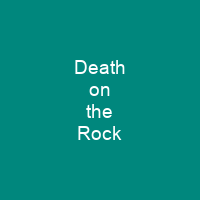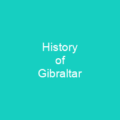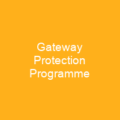“Death on the Rock” was an episode of Thames Television’s current affairs series This Week. The programme examined the deaths of three IRA members in Gibraltar on 6 March 1988. It presented evidence that the IRA members were shot without warning or while attempting to surrender. Thames commissioned an independent inquiry into the making of the programme. The report found it to be a “trenchant” work of journalism, made in “good faith and without ulterior motives”
About Death on the Rock in brief

The series’ editor, Roger Bolton, dispatched journalists to Gibraltar and Spain, where they interviewed several people who witnessed the shootings as well as Spanish police officers. Satisfied by the journalists’ findings, Bolton sought a conclusion to the programme; as the government refused to comment, Bolton recruited a leading human rights lawyer to give his opinion on the findings. Most of the eyewitnesses interviewed for the programme gave evidence at the inquest into the shootings; most repeated the statements they had given the programme, but one witness retracted his previous statement. Carmen Proetta, one of the documentary’s main witnesses, accused her of being a former prostitute and of being anti-British; Proetta later successfully sued several newspapers for libel. In the immediate aftermath of the shootings, the British Government released a statement to the effect that a large car bomb had been found in Gibraltar, and that three suspected terrorists had been shot by British soldiers. That evening, British television reported the alleged finding of the car bomb in a car park while it was full of soldiers for the Convent ceremony. The three were suspected by British authorities of being part of a plot to detonate a bomb in the car park in Gibraltar. They were shot by members of the British Special Air Service, while the suspects were walking back towards the Spanish border, as they were walking towards the border, and they were shot dead by soldiers.
You want to know more about Death on the Rock?
This page is based on the article Death on the Rock published in Wikipedia (as of Nov. 05, 2020) and was automatically summarized using artificial intelligence.







